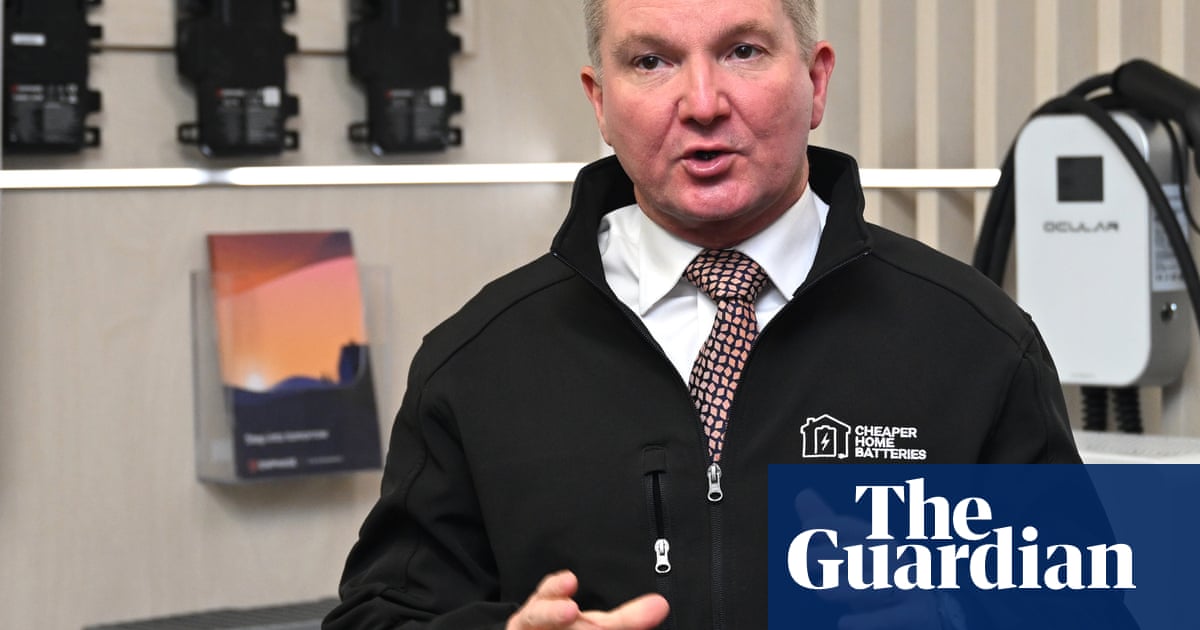Chris Bowen has ridiculed theLiberal partyfor putting net zero by 2050 up for review after its election defeat, comparing it to putting the “sky being blue” up for debate.
The climate change and energy minister also warned that breaking Australia’s bi-partisan commitment to the “bare minimum” emissions target risked creating a sovereign risk for renewables investors.
The new Liberal leader, Sussan Ley, on Tuesday left the door open towalking away from net zero,after declaring all the party’s policies would be reviewed after the disastrous election result.
Ley said she would not ignite a fresh “climate war”, insisting there would be “sound, sensible consultation” on the party’s future climate and energy policies.
On Wednesday, Bowen said Ley’s assurance was “difficult to reconcile”.
“I mean, if you’re going to review net zero, I’m sorry, you’re keeping the climate wars going,” he told reporters in Canberra.
“Particularly if you decide to scrap net zero – that’s keeping the climate wars going.”
Ahead of the 2021 UN climate summit, then prime minister Scott Morrison signed the Coalition up to net zero by 2050 as Australia faced intense pressure to raise its game.
Peter Dutton and the Nationals leader, David Littleproud, retained the commitment in the previous term, with nuclear power pitched as the key to achieving the target.
But the Coalition’s support for the policy is now up in the air, with the Nationals also set to review its position – even after senator Matt Canavan failed in his bid to replace Littleproudon a platform of dumping net zero.
As of June last year,104 countrieshad signed up to the target.
Bowen said that if the Liberals ultimately decided to abandon the target, it would prove Canavan and his allies were “calling the shots”.
“Net zero by 2050 is not a policy, it’s the bare minimum framework that you have to work under,” he said.
“If Sussan Ley is saying that’s up for review, she might as well say ‘the sun is coming up tomorrow is up for review’, or the ‘sky being blue is up for review’.”
The re-elected Albanese government has its own emissions debate to resolve, with a 2035 targetdue later this year.
Bowen confirmed he was still awaiting Climate Change Authority advice on the new target, which was originally due in February but was delayed to allow time to assess the impact of Donald Trump’s return.
He could not provide a timeframe for a decision but said the target would be released “well and truly” before the next UN climate summit in Belém, Brazil, in November.
Australia isvying with Turkeyto host next year’s COP31 summit, with a decision on the successful bidder expected within months.
The global climate negotiations and trade show would be a major coup for Australia, drawing tens of thousands of people to Albanese’s preferred host city, Adelaide.
As climate change minister of the host nation, Bowen would be the natural choice for COP president, a rotating role that would put him in charge of organising and running the talks.
Asked on Wednesday if he had turned his mind to the position, Bowen said: “That’s something we’ll have more to say when the bid is confirmed”.
In anticipation of a successful COP bid, Albanese created a new climate related-special envoy role – to be filled by Labor MP Kate Thwaites – to help lighten the load on Bowen.
Josh Wilson, as the assistant minister for climate change and energy, would also help out.
